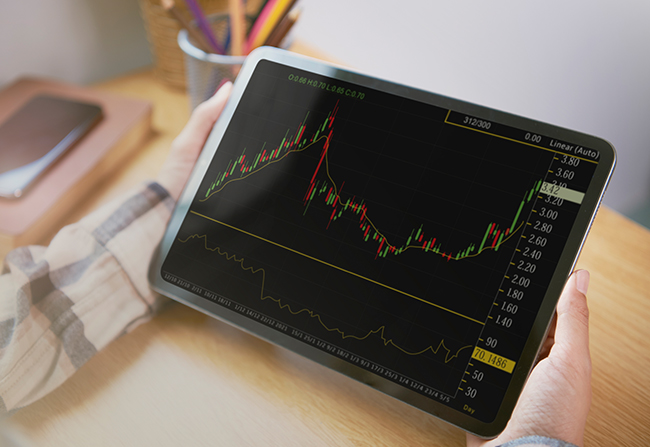
Trading psychology is one of the most critical, yet often overlooked, aspects of trading success. While having technical skills, market knowledge, and a solid strategy are essential, your ability to manage emotions and maintain discipline often determines whether you succeed or fail as a trader. Understanding the psychological factors that influence your decisions can help you navigate the emotional challenges of trading.
In this article, we’ll explore the role of trading psychology, common emotional pitfalls traders face, and practical tips to master your mindset for consistent trading performance.
What is Trading Psychology?
Trading psychology refers to the mental and emotional aspects that influence a trader’s decision-making process. Markets are unpredictable, and trading often involves high stakes, which can evoke a wide range of emotions, from fear and anxiety to greed and overconfidence. Managing these emotions is crucial for making rational, well-informed decisions.
For example, when prices drop unexpectedly, fear might drive you to sell at a loss. Conversely, greed can push you to hold onto a winning position for too long, risking a reversal and erasing your gains. Successful trading psychology involves cultivating discipline, patience, and emotional resilience to make decisions based on logic rather than impulses.
Common Psychological Challenges in Trading:
Trading challenges go beyond the technical and extend into the mental and emotional realm. Understanding these common psychological pitfalls is the first step to overcoming them.
Fear and Anxiety:
Fear often arises when traders face uncertainty or potential losses. This can lead to hesitation, prematurely exiting trades, or avoiding opportunities altogether. Anxiety, especially after a series of losses, can also cause traders to second-guess their strategies.
Greed and Overconfidence:
Greed can lead to overtrading, ignoring risk management rules, or holding onto trades longer than necessary in the hope of bigger profits. Similarly, a string of successful trades may lead to overconfidence, causing traders to take on excessive risk or abandon their plans.
Impatience and FOMO (Fear of Missing Out):
Impatience often leads traders to enter trades impulsively, without proper analysis. FOMO occurs when traders chase after rapidly moving markets, often entering at the worst possible moment.
Revenge Trading:
After a loss, some traders feel an urge to immediately recover their losses by taking impulsive trades. This “revenge trading” mindset often leads to even greater losses.
Loss Aversion:
Loss aversion is the tendency to avoid realizing a loss by holding onto losing positions, hoping the market will turn around. This can lead to even larger losses if the market continues against you.
How to Develop a Strong Trading Mindset:
Mastering trading psychology requires self-awareness, discipline, and consistent effort. Here are practical steps to improve your trading mindset:
Set Realistic Expectations:
Unrealistic expectations, such as expecting to double your account in a month, can lead to frustration and poor decision-making. Instead, focus on gradual, sustainable growth and accept that losses are a natural part of trading.
Follow a Trading Plan:
A well-defined trading plan serves as your roadmap, outlining your entry and exit criteria, position sizing, and risk management rules. Sticking to your plan helps eliminate emotional decision-making during trades.
Practice Risk Management:
Protecting your capital is a cornerstone of trading success. Use stop-loss orders, position sizing, and risk-reward ratios to manage your risk effectively. When you know your risk is controlled, it’s easier to stay calm under pressure.
Embrace Losses as Learning Opportunities:
Every trader experiences losses. Instead of viewing them as failures, see them as opportunities to learn and improve. Analyze your trades to identify what went wrong and adjust your approach accordingly.
Tips for Managing Emotions in Trading
Emotional control is essential for staying disciplined and focused. Here are strategies to manage emotions while trading:
- Take Breaks:
If you find yourself overwhelmed by fear, frustration, or overexcitement, step away from your screen. Taking a break can help you regain composure and avoid impulsive decisions. - Use Mindfulness Techniques:
Practices like deep breathing, meditation, or journaling can help you stay present and reduce emotional reactivity. Being mindful allows you to approach trading decisions with greater clarity. - Limit Screen Time:
Overanalyzing the market can lead to emotional fatigue and overtrading. Set specific times for market analysis and trade execution to avoid burnout. - Separate Outcomes from Self-Worth:
Many traders tie their self-esteem to their trading results. Instead, focus on executing your strategy consistently and following your process, regardless of individual trade outcomes. - Avoid Comparing Yourself to Others:
In the age of social media, it’s easy to compare your progress to others. Remember that trading is a personal journey, and everyone progresses at their own pace.
The Role of Journaling in Trading Psychology:
Keeping a trading journal is one of the most effective ways to improve your psychology and decision-making. A journal helps you track your trades, analyze your performance, and identify patterns in your behavior.
When journaling, include details such as:
- Entry and exit points.
- Reasons for taking the trade.
- Emotions felt during the trade.
- Outcome of the trade and lessons learned.
Reviewing your journal regularly can provide valuable insights into your strengths, weaknesses, and areas for improvement. It also helps you stay accountable and disciplined.
Conclusion:
Trading psychology is a critical component of trading success. Even the best strategies can fail if emotions are not managed effectively. By recognizing and addressing psychological challenges, such as fear, greed, and impatience, traders can make more rational decisions and improve their overall performance.
Developing a strong trading mindset takes time, self-awareness, and practice. With the right mindset, tools, and techniques, you can navigate the emotional ups and downs of trading and set yourself on the path to long-term success. Remember, trading is as much a mental game as it is a technical one—mastering your mindset is the key to thriving in the markets.




